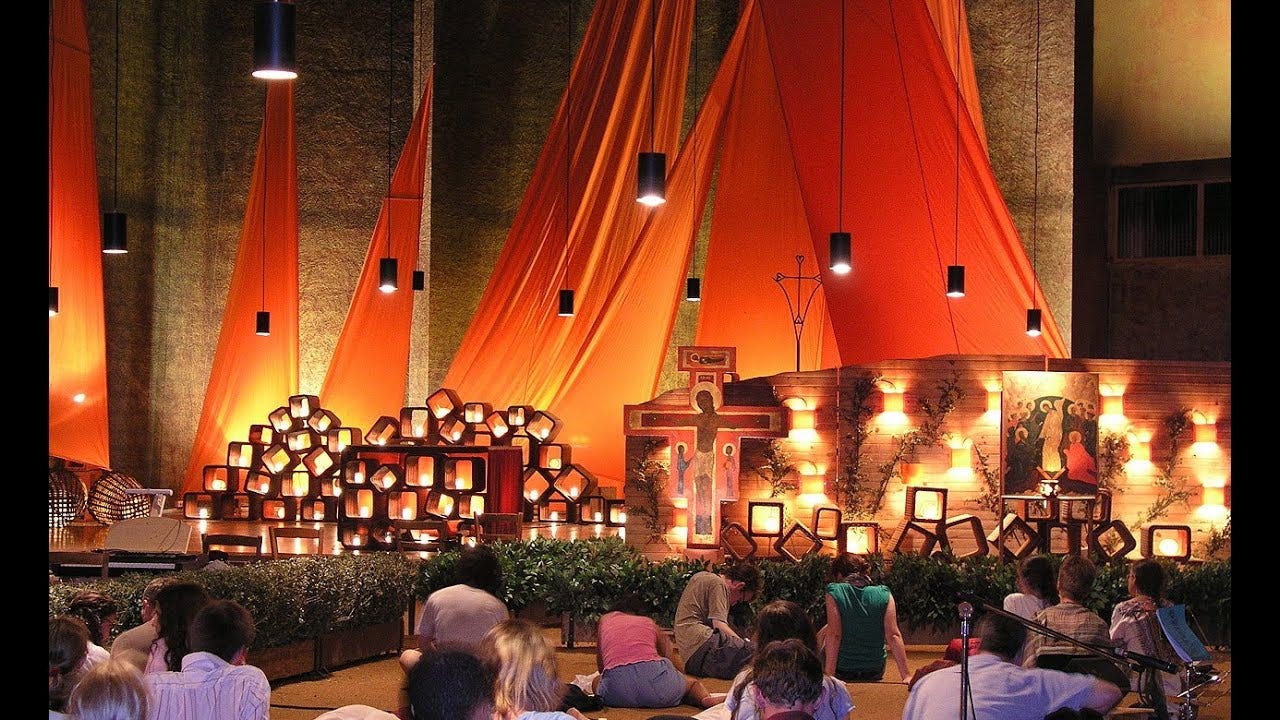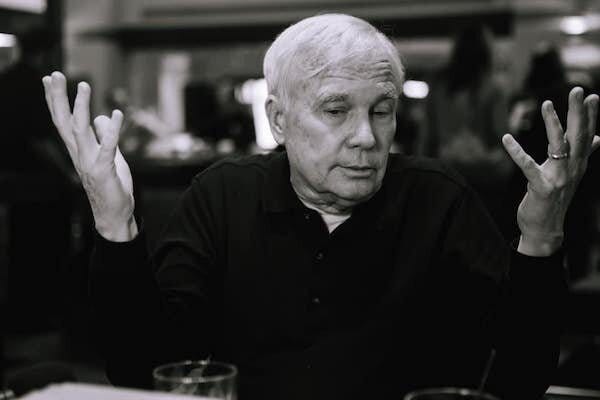Box scores distill any sporting event into easily understandable numbers which do not lie. More Ks for your pitcher equals a better chance for your team to win, while more Ks for your batters equals a better chance for the other team to win. The writers telling the game recap can put their spin on the outcome, but the box score does not lie. The box score cuts through the pundits' spin, revealing exactly how your favorite team performed.
So last week, when
wrote a reflection on his career as an amateur baseball umpire, I immediately returned to fourth grade and my Current Events presentations. I went back to my best attempts to be George Michael.[1]The numbers in the box scores told the clearest story of any outcome from the previous night.
Today I coach my childrens' baseball teams (Yes, teams with an "s". Between my two children, we have three teams.). In coaching their teams, I comb through scorebooks, looking for patterns as I comb through scripture and theology books to make sense of texts for Sunday preaching, Bible studies, podcasts, and blog posts like this one.
There are remarkable similarities between baseball's movement and the movement of the Church. Yes, I know the liturgy of the Church can be just as confusing as many of the rules enforced by Angel Hernandez[2] behind Homeplate, yet the liturgical theology of the Church and the rules (written and unwritten) and culture within baseball make each of those institutions who they are. It's not that the Church finds its identity in our theology, nor baseball in its rules, but in each, both institutions can make sense of their identity and carry the histories each has.
The Church and baseball (from the majors down to my daughter's T-Ball team) have specific ways of doing things. In baseball, this is the written and unwritten rules, while in the church, we call this Liturgy.
Liturgy is how the Church orders its life. Even churches that do not view themselves as liturgical have their liturgy.
Liturgy is how the Church marks time.
Advent, Christmas, Epiphany, Lent, Easter, Eastertide, Pentecost, Ordinary Time, the Reign of Christ the King, and repeat.
The Taizé community in France is a prime example for how liturgy marks time.[3]
Monday to Saturday
8.15 am Morning prayer
12.30 pm Midday prayer
8:30 pm Evening prayer (with two exceptions in January - see below)
Friday evening
8:30 pm Evening prayer followed by prayer around the cross.
Saturday evening
· 8:30 pm Evening prayer with celebration of the light of the Resurrection
Sunday
10:00 am Eucharist
8:00 pm Silent prayer for peace
8:30 pm Evening prayer
Liturgy is not limited to the "smells and bells" of what some call "high church." Instead, our liturgies are the patterns through which we order our lives as faith communities. Your congregation may not use a book of worship or common prayer, but you can be sure there is a pattern to how your worship services are ordered. The regularity of this pattern ensures that when the turmoil of the world becomes too much or when the people in the pews or folding chairs are exhausted by the busyness of life, the liturgy of the Church helps us stay focused in our worship and thus focused on the Lordship of Jesus.
Retired United Methodist Bishop Will Willimon writes, "Liturgy functions as a means of helping us cope with life's most difficult circumstances. It helps us get by." He continues, "(Our) ritual is part of a complex act of self-protection from destructive, unintelligible, and immoral forces."[4]

Baseball has a liturgy to mark its own time.
The offseason with coaches’ meetings and individual player workouts, preseason pitchers report, preseason teams report, preseason games, Opening Day[5], regular season play, Wild Card games, Playoffs, the World Series, and repeat.
The liturgy of baseball is found in its written and unwritten rules.
The home team always bats second (written).
When a player feet-first, they should do their best to keep their cleats down as not to injure the opposing player attempting to make a play at the base (unwritten).

Batters and runners, once out, should not run across the pitcher's mound as they make their way back to their dugout (unwritten).
Three strikes and you're out, or four balls on you go to first (written).
The liturgy of the game is not reserved to the field of play. Fans have their own liturgy. While the liturgy varies from stadium to stadium, some easily predicted movements help fans understand what is happening on the field.
The seventh-inning stretch (unwritten) signals that the game is almost over, and if you want one last beer, you better move quickly.
While it is acceptable to wear your team's logo and cheer for your team in an opposing team's stadium, do not become when your team makes a defensive play, scores, or the pitcher is throwing gas keep your cheering to a respectable level and do not, under any circumstance, become belligerently drunk. While this is an unwritten rule, written legal consequences can happen should one not heed the unwritten liturgy.

Without purpose behind what we do – in church on Sunday morning or on the baseball field – we run the risk of making a worship service or game about the individuals present and not about the broader purpose of service or game. In the church, that focus is on the life, death, and resurrection of Jesus Christ, who has reconciled all of creation to God through God’s own faithfulness and not our ability to correctly execute a prescribed liturgy or 6-4-3 double-play.
In the church and on the ball field, what we do can make no sense to the casual observer. In God Turned Toward Us: The ABCs of Faith Willimon writes, “There’s a gratuitous quality to Sunday morning liturgy -- overstatement, repetition, extravagance, parading about in fancy dress, dancing, and full-throttle emotion -- the way lovers sing songs or write poems for their beloved even when they are no good at poetry or can’t carry a tune. To those who are not in love, lovers always look goofy.”[6]
The knickers and high socks look goofy to those that do not know the rich history of baseball.
My robe and stole may look goofy to those who have never been in a church service, or who do not know that the stole represents being yoked in ministry with Christ.
Theological concepts like transubstantiation, sacraments, or Christology are confusing to the casual observer just as balks, pick-off moves, and pitch clocks are confusing to people new to baseball.
But the liturgy – of the church and baseball – is how we mark time.
Our liturgy keeps us focused on the main thing, and keeping the main thing the main thing, in baseball and in church, is the point of the written and unwritten movements.
[1] From Wikipedia - George Michael (March 24, 1939 – December 24, 2009)[1] was an American broadcaster best known nationally for The George Michael Sports Machine, his long-running sports highlights television program. Originally named George Michael's Sports Final when it began as a local show in Washington, D.C., in 1980, it was nationally syndicated by NBC from 1984 until its final installment was aired on March 25, 2007. Michael won a Sports Emmy in 1985 for his work on The George Michael Sports Machine.
[2] Angel Hernandez is one of the worst umpires in the history of baseball. He regularly seeks out confrontation with players and coaches. His ability to call balls and strikes makes the most novice baseball observer scratch their head. If there were to be a how-to-guide for baseball umpires, the section title “What Not to Do” would be an overview of Hernandez’s career behind the plate.
[3] https://www.taize.fr/en_article70.html
[4] Willimon, William. Worship as Pastoral Care. Abingdon Press. 1982.
[5] It is a travesty that MLB Opening Day is not a national holiday in the United States.
[6] Willimon, William. God Turned Toward Us: The ABCs of Christian Faith. Abingdon Press. 2021.






